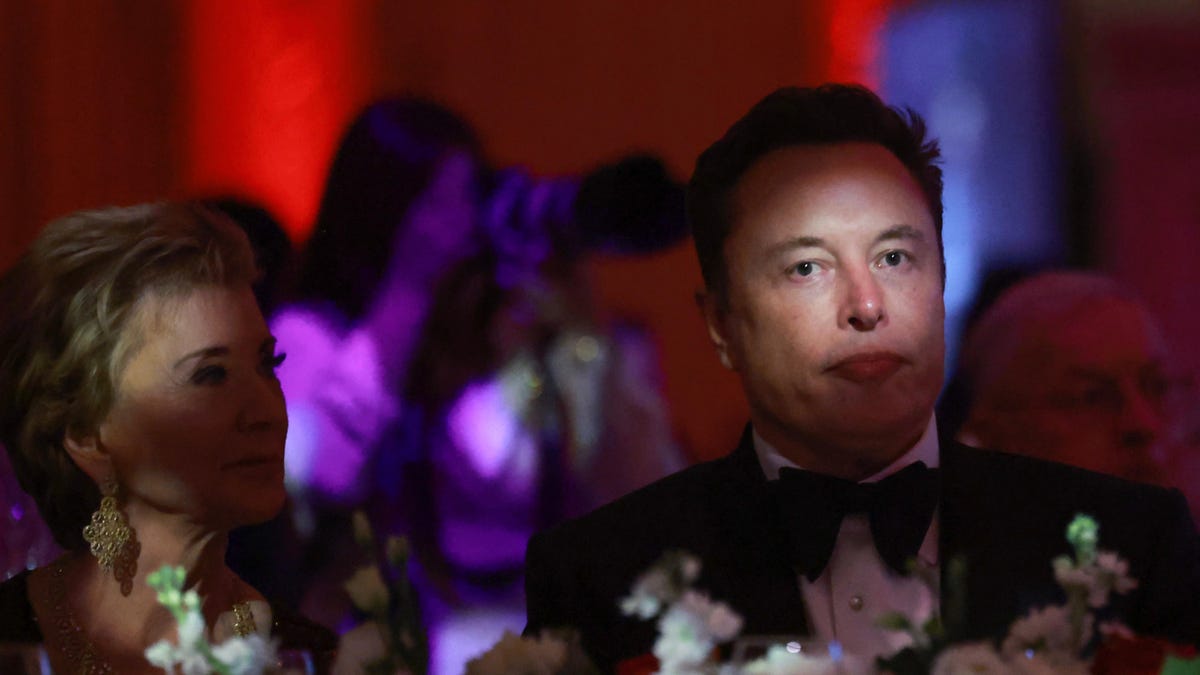After running a campaign built on nothing more than bigotry and empty promises, Donald Trump won the election. As you can imagine, anyone who still has something resembling a moral center has a problem with that, but unfortunately for all of us, the internet has apparently chosen baseless conspiracy theories instead. If you believe certain accounts on TikTok, Elon Musk used Starlink to steal the election for Trump, thus allowing him to fulfill his dream of serving on an advisory committee alongside Vivek Ramaswamy.
Wired took a dive into these QAnon-like conspiracy theories and found they really did spread in similar ways, starting with vague assertions that “something doesn’t add up” that slowly evolved into more specific claims about voting machines, satellites and powerful people working in the shadows to steal the election. The good news is, while these conspiracies are still spreading, so far, we have yet to see any notable Democratic politicians promoting them like we saw from prominent Republicans, including Trump, following his loss in the 2020 election. From Wired:
What began as vague, amorphous claims that “something doesn’t add up” in the hours after president-elect Donald Trump won the election last week have now crystallized into an evolving conspiracy theory involving Musk and Starlink.
The major difference, however, is that while Trump and his allies quickly
embraced the conspiracies, so far no Democratic lawmaker or election official
has promoted the idea that the 2024 election was stolen.“Similar to the general claims we’ve seen from the left baselessly speculating that
the election was rigged for Trump, the surge in posts about Starlink appears to
have been partly driven by relatively obscure accounts that often share little to no
identifying information,” says Sam Howard, politics editor with media monitoring
group NewsGuard. “I’m not aware of any federal-level Democratic officeholders
or officials who have pushed this to date.”Harris and her campaign have never once suggested the election results are
anything but what was reported, and in her concession speech last week Harris
urged her supporters to accept the outcome.
How exactly Musk supposedly used Starlink to steal the election isn’t entirely clear, but the conspiracy appears to have begun after it came out that some polling locations used Starlink to improve their internet connectivity during voter check-in. That somehow morphed into voting machines being connected to Starlink, and Musk using that to win the election.
Other alleged “proof” of Musk’s involvement includes claims that Musk then destroyed several Starlink satellites to cover up his role in stealing the election. That claim falls apart when you remember Starlink satellites are designed to burn up when they re-enter the atmosphere at the end of their lifecycle.
As Jen Easterly, the director of the Cybersecurity and Infrastructure Security Agency, said in a recent statement, there is “no evidence of any malicious activity that had a material impact on the security or integrity of our election infrastructure.”
If you’re heartbroken or even just massively bummed over the outcome of the election, I totally get it. You wanted to believe most voters were decent people who could see through Trump’s lies and would vote to keep him out of power. It sucks realizing how gullible so much of the country is, and it feels even worse to think about the millions of lives that will be ruined by a second Trump administration’s hateful policies. It just doesn’t do anyone any good to spread baseless conspiracy theories, especially since giving these accounts exposure only helps give those creators more influence and opportunities to grift off their popularity:
Disinformation researchers are still unsure whether this trend will continue to
grow into a significant movement, akin to Stop the Steal, or fizzle out without
support from major figures within the Democratic party. But some believe the
movement could continue to grow thanks to influencers seeking to gain clout.“There are incentives for people to do this,” says Elise Thomas, a senior open
source analyst at the Institute for Strategic Dialogue. “It feels really good to get all of those likes. If they’re getting, you know, 100,000 likes, 500,000 likes for these tweets, they’re going to keep doing it, and they’re going to come up with new twists on the narrative, and new explanations. That’s exactly what we saw
happening on the right.”
Still, the fact that we have yet to see Harris, Sanders, AOC or any other prominent Democrats get caught up in similar conspiracies is a good sign we likely won’t see the so-called BlueAnon movement take off like we saw with right-wingers and their claims the 2020 election was stolen from them. At the same time, it still isn’t great. As Thomas explained:
I’ve seen some comparisons to Stop the Steal and some of these other right-wing conspiracy election theories, and it is smaller than those, as they were at the end of the Trump presidency. But I think the significant difference there is that they came after months, if not years, of deliberate agitation and cultivation by a variety of actors. So, for me, to see these left-wing election fraud conspiracy theories getting pretty significant traction quickly, I think, personally, is quite concerning.


